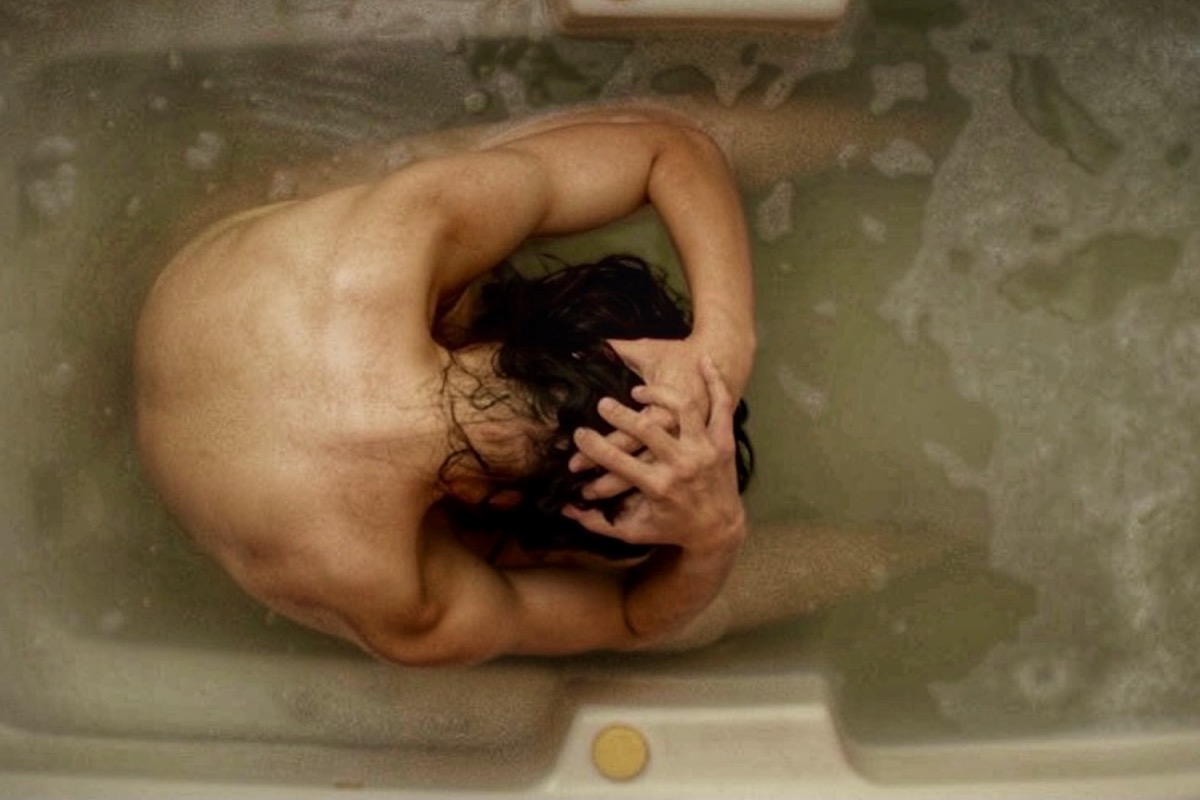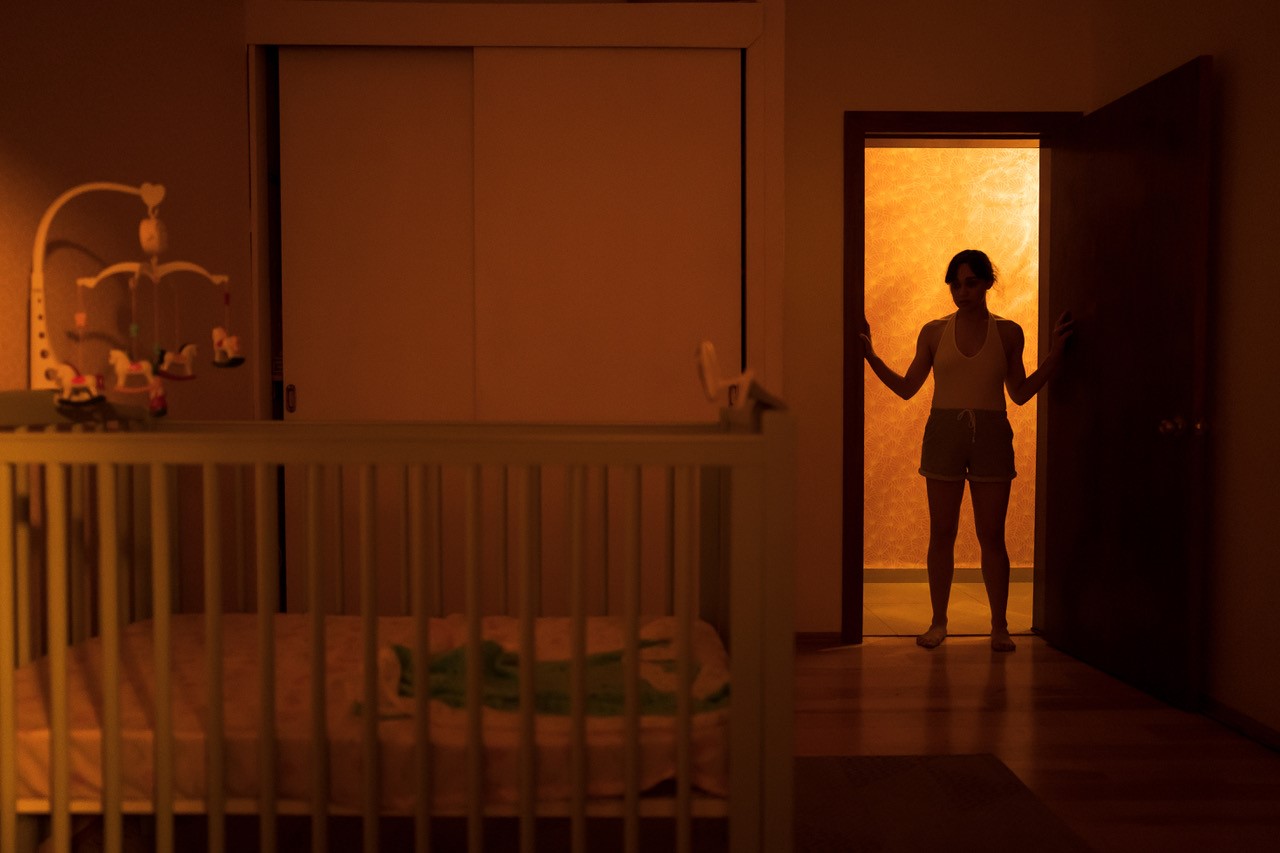

‘Huesera: The Bone Woman,’ directed by Michelle Garza Cervera
Writer-director Michelle Garza Cervera’s feature debut, Huesera: The Bone Woman, exposes the Mexican cult of motherhood as a site of horror. In theaters this week, the film follows Natalia Solián as Valeria, a young Mexican woman who’s convinced herself that she wants what society wants of her: a traditional, heteronormative relationship and the baby that goes with it. But living that particular dream turns into a nightmare for Valeria as her belly grows—and it doesn’t get better after the baby arrives.
Solián told Latino Rebels she found screening the film “scary” because “the topic of the movie is difficult for Latino culture. In Mexico, motherhood is something that you can’t touch because the mother is sacred.”
But after Huesera premiered at the Tribeca Film Festival, she “understood that we have a big treasure in our hands.” And, indeed, the film took home the festival’s award for best new narrative director as well as the Nora Ephron Award, “given to a female writer or director who embodies the spirit and vision of the legendary filmmaker.”
I can see why the Huesera team might be nervous about the film’s reception. The heroine Valeria does things that in a different film might make her unlikeable at the very least, if not someone to root actively against. But in Michelle Garza Cervera’s able hands, the audience stays with Valeria. The trick is in Cervera’s understanding that, as she told Latino Rebels, “this concept of the great caring mum, it’s really anti-human. There’s nothing human in that because we’re all complex.”
So, instead of making Valeria the villain, Cervera puts the blame on the box of motherhood, that call to be totally self-sacrificing, and the assumption that all women should aspire to be mothers. She achieves this through an ending I won’t spoil—but let me just say, it shows that Valeria can learn to love herself in a way that fosters empathy toward others. And that love, while it requires Valeria to reject the expectations she, her family, and society have put upon her, results in unexpected freedom and peace.
But before that resolution, Valeria falls for society’s promises that being a mom will fulfill her. Instead, she’s haunted by visions of breaking bones—her own and an apparition’s. Over the course of the film, these experiences only get more intense as does Valeria’s desperation – she turns to brujería for answers and rebels against her husband.
Alfonso Dosal plays Raúl, Valeria’s partner and part of the problem. In many ways, his response seems reasonable, but the film asks us to question who gets to define “reasonable” and why. For example, Raúl and Valeria both work from home but she’s the one who gives up her workshop —and her work— to make room for the nursery. The two don’t even discuss it. The arrangement is just a given.


‘Huesera: The Bone Woman,’ directed by Michelle Garza Cervera
Later when Valeria tells Raúl about her visions, he doesn’t believe her, eventually contemplating having her committed (she does set some stuff on fire). “Guys really get connected with this guy without knowing they are connecting with machismo,” said Dosal.
For him, the journey from seeing Raúl as a kind, sensitive husband to someone upholding patriarchy is particularly important for men in the audience. He thinks it will help them question their assumptions, work at listening to women better, and interrogate the subtle ways sexism works in their relationships.
Valeria’s journey can also serve as a lesson. Perhaps her visions of breaking bones reflect the betrayal of her inner self—the one that knew motherhood wasn’t right for her from the beginning. They certainly echo the huesera of Mexican folklore, a woman who gathered bones in the desert, sang life into them, and found freedom as a wolf in motion.
Cervera says she chose bones as “symbolic and at the same time, great for horror films.” She knows “breaking bones causes such a reaction physically—the sound and the image of it.”
As such, Huesera functions as a body horror film and, like the best of them, one with deep political underpinnings. Here, the ways in which expectations around motherhood can push women to betray what they know deep down in their bones: who we are and how we can best contribute to a society that would prefer to conform to a single, self-sacrificing role.
—
Huesera: The Bone Woman will be in theaters Friday, February 10, in major markets across the U.S. and on-demand starting February 16.
***
A writer and activist, Cristina Escobar is the co-founder of latinamedia.co, uplifting Latina and gender non-conforming Latinx perspectives in media. She’s a member of the Latino Entertainment Journalists Association and writes at the intersection of race, gender, and pop culture. Twitter: @cescobarandrade



[…] The title of Netflix’s new Mexican thriller, I Don’t Expect Anyone to Believe Me, balances in between several different layers. Based on the book by Juan Pablo Villalobos and directed by Fernando Frías de la Parra, I Don’t Expect Anyone to Believe Me follows Juan Pablo (Dario Yazbek Bernal – Casa de las Flores) as he becomes entangled in an organized crime network while leaving his native Mexico to get his Ph.D. in Barcelona with his girlfriend Valentina (Natalia Solián – Huesera). […]
[…] Título de la nueva película mexicana de Netflix, No espero que nadie me crea, equilibra varias capas diferentes. Residencia en el libro por Juan Pablo Villalobos y sácalo Fernando Frías de la Parra, No espero que nadie me crea Sigue a Juan Pablo (Darío Yazbek Bernal – Casa de las Flores) donde se involucra en una red de crimen organizado mientras deja su México natal para obtener su doctorado. En Barcelona con su novia Valentina (Natalia Solyan – Osera). […]